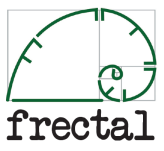I’d like to introduce some articles that I have pulled aside from blog “posts” into “pages”. In doing so I’m trying to set aside some articles that I hope hold up over time and provide a foundation for any other material that may appear here. I have worked towards 5 themes i.e. articles that cover the main themes of my work. As I like the number 5, it seemed the right number to break up the work into themes and chapters, without being too many.
The aim of this blog and these articles is to share what I consider common sense in areas of particular interest to me, something that I don’t find is applied consistently enough.
Let me now step through very brief explanations of these articles, to ensure that there is a clear and consistent train of thought from start to end.
Firstly, I begin with an exploration of healthcare, I field I grew up within and into. That exploration will include a look at the pressure of the frontline of healthcare, the challenge of healthcare improvement, the challenge of aligning healthcare practice with healthcare research. In particular it looks at the need for change to deliver better value for money in healthcare.
Secondly, I then look at a broader framework that I find helpful in many ways to tackle those challenges,.ie the Cynefin framework. It provides a framework to explore a broad range of life’s issues, from Simple to Complicated to Complex to Chaotic, issues/problems/challenges. I find it useful across Healthcare, Management and Information Technology challenges, indeed across all domains and so it suggests a coherent means to address a wider range of challenges.
Thirdly, armed with this framework to tackle challenges, I explore the perpetual issue of change. Change is often discussed and promoted as a new idea rather than an inexorable part of life and part of the evolution of mankind. Here we accept that change is inevitable and discuss how this might be embraced by exploring common themes amidst the complex system of organisational change, again pulling common patterns together that I see in all directions I look. Those include ;
- people (including issues such as cultural change & the recurring importance of leadership in change),
- process (including process improvement, (a relatively modern term but in many ways simply this is what do we humans do)),
- information (as an integral part of our human existence, an enabling and empowering thing)
- technology (again a modern term but importantly humans have been developing tools to solve problems as long as we have been humans)
- value for money (where by I discuss what is this thing called value anyway?)
Fourthly, I focus in more detail on a key relationship amidst those important factors in change, i.e. the critical interface between process improvement and information technology. While many organisations have worked at connecting these in a “complicated” fashion, I make a case to suggest that as both process improvement and information technology are ”complex” fields, they need to learn from complex systems theory and learn about the importance of patterns. In examining the current relationship between process improvement ( Lean Thinking) and Service Oriented Architecture worlds, I suggest an approach that I believe can help align teams with a generic approach that better unites process improvement and SOA efforts by examining common patterns, towards a simpler approach to this complex problem.
Fifth and last, I come back to healthcare as an area to explore how to apply these principles of improvement. This section examines the universal need for healthcare reform, the application of process improvement to healthcare and addressing the current problems with healthcare information systems. I make a particular case that clinical teams need to work to align process improvement efforts with electronic health records, based on common patterns in healthcare. In addition I explore a development named openEHR and its potential to handle the complexity and change within healthcare systems. In conclusion I examine the case for an open source ecosystem in healthcare, which I believe is now needed.
- Healthcare – an introduction
- Chaos-Complex-Complicated-Simple and Cynefin
- The challenge of Change; key patterns
- Change; Harnessing the key patterns
- Healthcare Change & the way forward
Version(s)
0.2230 Tony Shannon October 2010 .
–





Leave a comment